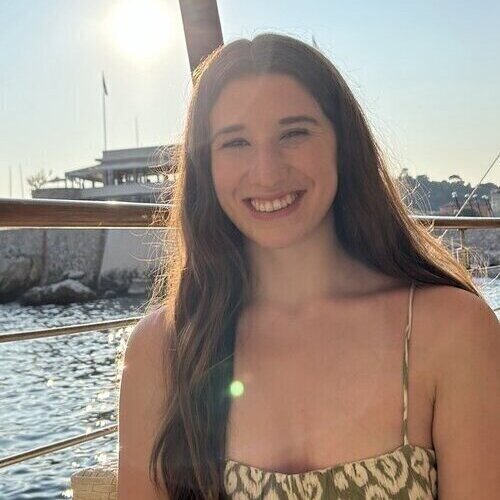Tell us a little bit about your journey to studying Mlitt Creative Writing...
Stories have been important to me from a very early age. I had an excellent English teacher in secondary school, who encouraged me to both read widely and write often. After school, it was important for me to make time to write even when studying other subjects at university. I previously studied for a BA in Jurisprudence at the University of Oxford and went on to study for an LLM in Medical Law & Ethics at the University of Edinburgh. My background is therefore really in legal studies, which meant that embarking on an MLitt in Creative Writing was in some ways quite an intimidating prospect. But the idea of carving out an entire year where writing would be my core purpose was incredibly exciting.
Tell us about the format of the programme. What were you doing week-to-week?
The MLitt in Creative Writing balances opportunities to experiment in different creative approaches under expert tutors, with more practical learning about the industry of creative writing. Some weekly seminars involved investigating a technique or form in literature and discussing their effectiveness. There were a lot of opportunities to consider how the ideas explored in classes might influence the approach taken to our own writing.
Other modules considered the more practical aspects of writing and publishing. In the first semester, the final project for the Writing Life module involved producing a piece of creative writing specifically tailored for submission to a chosen publication target. After completing the assignment, I submitted it to my chosen target – an online literary journal – where it was accepted and subsequently published. This was particularly exciting and provided me with real experience of the editing process.
What were the most enjoyable parts of your degree?
The course culminates in a Major Project, which is an extended piece of writing to be written over the summer term. This was a really exciting opportunity to attempt a longer piece of writing and receive support and feedback from a supervisor while doing so. Throughout the year, other module assignments allowed me to develop my ideas gradually with this in mind. While challenging, it was a highly rewarding experience.
Tell us about your new role and what your job is like?
Since completing the MLitt, I have begun a Doctoral Training Programme at the University of Leicester where I am researching the legal and ethical implications of direct-to-consumer genetic testing. Most of my day-to-day work involves researching medical law and bioethics for my thesis. I still do a lot of writing – but often it is academic rather than creative.
How do you feel your degree helped prepare you for this role?
Creative writing might seem relatively far removed from legal study, but both require careful consideration of the perspectives and interests of others. Academic writing might take a very different stylistic form, but it needs an underlying narrative. The MLitt allowed me to think about different styles of communication in research and how developing skills in one area might transfer to another.
What advice would you give to someone who is considering working in a similar role to yours?
Take whatever chance you have to do the things that are important to you and that you love. Being creative and explorative can only enhance the skills that you have in other areas and may offer you something unique when approaching new challenges.
